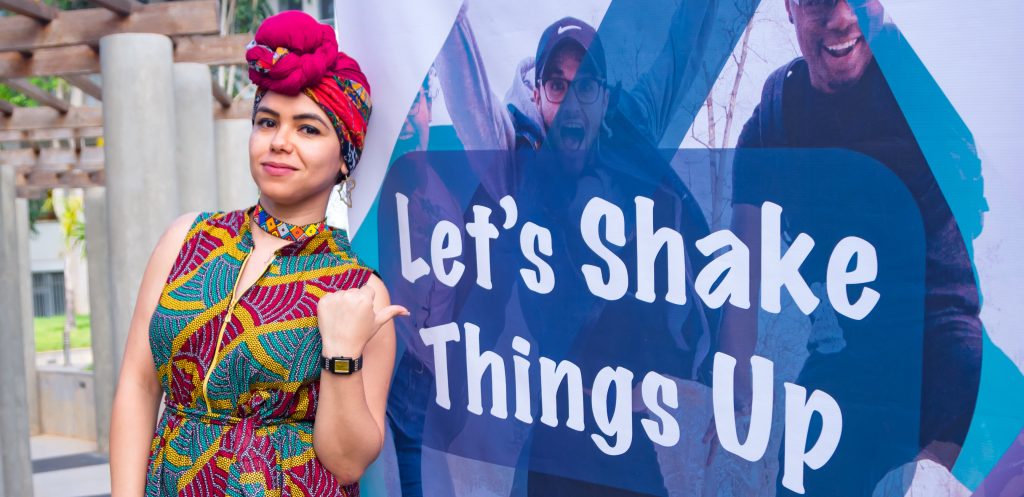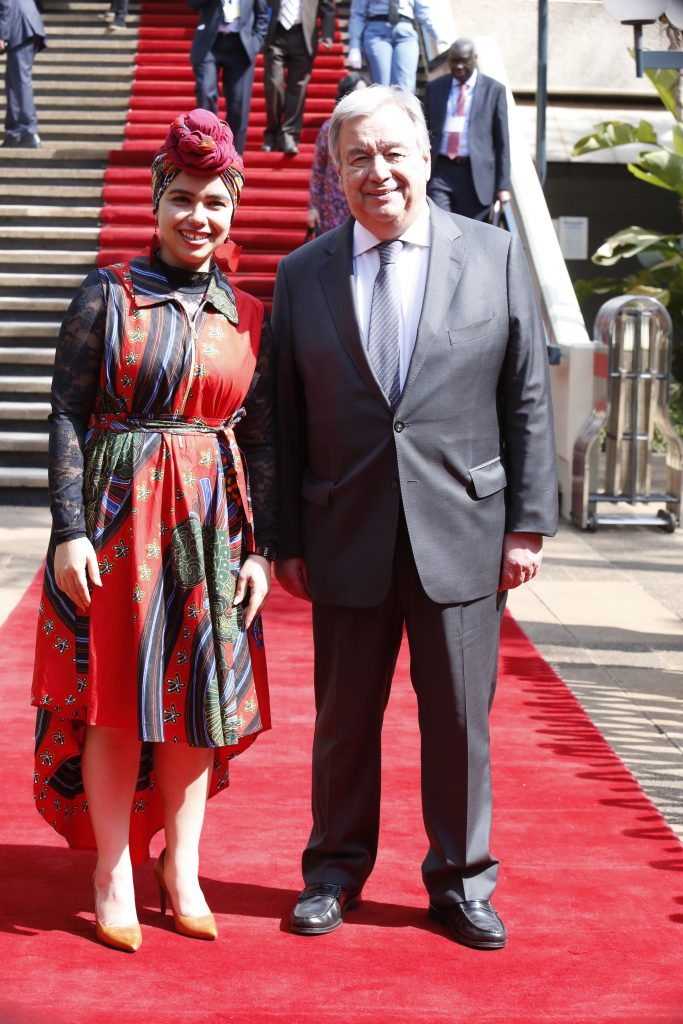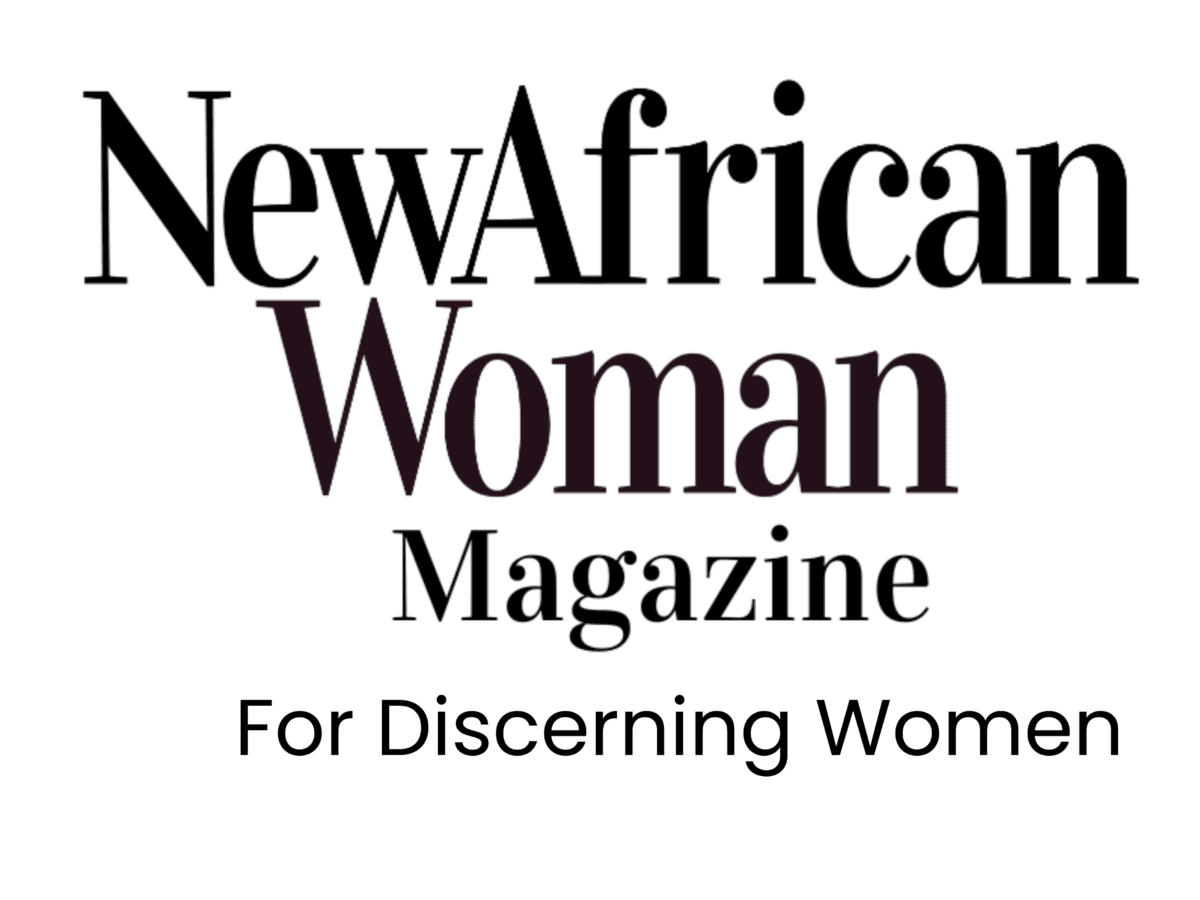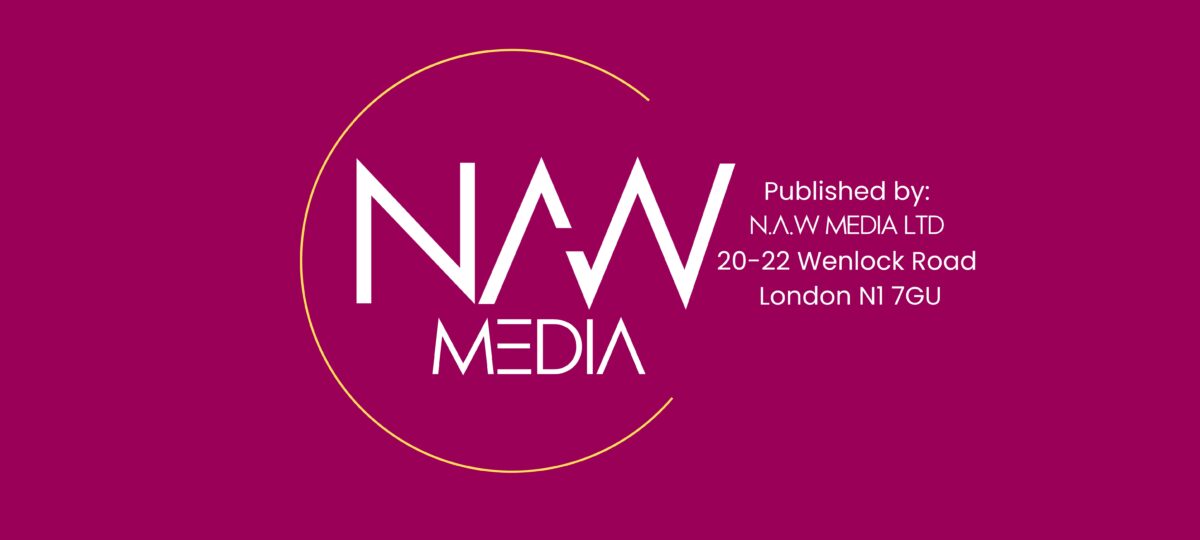Talking about her generation: Aya Chebbi – on youth inclusion in leadership

Editor - NAW
Aya Chebbi is the first-ever Youth Envoy of the African Union. In this interview with our Editor reGina Jane Jere, the resolute Tunisian activist discusses her role and the importance of what she terms “intergenerational co-leadership”
The creation of the post of Youth Envoy, comes at a time when the voices of African youth, demanding change and inclusion in Africa’s political and economic landscape, are becoming hard to ignore.
Before her current role, Aya Chebbi was already a popular youth activist, feminist and blogger. She caught the world’s attention for her uncompromising peaceful activism and involvement in the Tunisian revolution, which changed the political discourse of that country.
She is the founder of the Afrika Youth Movement (AYM), one of Africa’s largest Pan-African movements, which takes the agenda of African youth from the margins of society into the centre of regional and international discourse. Aya is also the founder of several other platforms including the Youth Programme of Holistic Empowerment Mentoring (YPHEM), which coaches youths to be positive change agents. She recently launched the Afresist project, a youth leadership programme and multimedia platform documenting youth work in Africa.
As the Programs Director for Africa and the Middle East at the World Peace Initiative Foundation, she founded four peace projects: Amani Fellowship, Amandla Fellowship, Heya Fellowship for Women and the MENA Salam Fellowship, where she organised and directed around 15 retreats that trained over 300 young people from some 40 countries to become peace agents. She also introduced mindfulness practice and non-violent communication to over 5,000 people in 10 countries in Africa and the Middle East. Her passion for youth empowerment intersects with her vision for peaceful, inclusive political change.
Aya says often: “I come from a generation that started the first 21st-
century peaceful revolutions, a generation that changed the course of history, and the way we use technology and access information, a youth movement that showed the world how to organise in new ways of activism…”

Below are excerpts from our interview.
You are now basically the spokesperson for African youth on both the global and continental stage – do you find this a daunting or a welcome challenge, compared to your activism?
With 65% of Africa’s population being under the age of 30, I am representing not only the most youthful population in the world, but the most innovative, best educated and the coolest generation. We want to and we are changing the landscape in Africa – economically, politically, demographically and culturally. As a generation of change-makers, we want to see and shape a new model of leadership in Africa. So, in this role I am honoured to play my part but the issues faced by the African youth are very complex, and therefore my role gets challenging. While I am representing this amazing and creative population, African young people are also the most marginalised, unemployed and insecure.
One of your core mandates is to advocate, and raise awareness on, the implementation of the Demographic Dividend Roadmap and the African Youth Charter. How prepared were you when you took on this role?
The youth agenda is my agenda. It is something I live, breathe and act on every day; this is why I immerse myself in this role with passion. But, I have been involved in pan-African youth activism for the 8 years since my involvement in the Tunisian revolution, which changed our history and political system, and transitioned my country into democracy. Coming into this position was a very natural next step for me. I can articulate and share stories of hope, and that change is possible and young people can help achieve it peacefully and non-violently and co-lead this continent to where it deserves to be.
In your view and from your experience, what is it that the world is still getting wrong, where in 2019, inequality is rampant if not worse, and Africa remains one of the most unequal places on earth. African youth are so frustrated and as their Envoy, what are your reflections?
We clearly live in an era where we have the most unequal societies of all time. The rich are becoming richer, the poor are becoming poorer. We are talking about the 1% and 99%, and 8 men owning the same wealth as the 3.6bn people who make up the poorest half of humanity.
In Africa, we ended up with a generation in waithood – waiting for adulthood, unable to achieve its financial freedom because of inequality. Especially when we show the intersections of class, gender, race, and other relations of power. Besides, Africa hosts the largest refugee and migrant populations. Look at the digital divide, 75% of Africa is offline. Yet, Africa has enough valuable natural resources to empower everybody, including women and the youth, if resources are distributed in an equitable way. But youths are dying in the Mediterranean and recruited to violent extremism as an alternative.
Can you elaborate?
While unemployment is often emblematic of systemic sources of marginalisation, it’s not the status of unemployment itself that leads to youth radicalisation for example, but the perception of injustice. When injustice is perceived, young people look upon violent groups as legitimate fighters, not perpetrators of violence.
The future of work therefore needs to be about equality and dignity, because young people don’t want just jobs but jobs with dignity. With courage and solidarity, African leaders can end inequality. Africa has the wealth to invest and the clearest path to reducing inequality is investing in African youth, our most important asset.
What do you believe should be done to change the status quo?
I think we need to bring young people closer to the leadership system and amplify their political voice. Youth should not only be at the table but also in key decision-making positions.
In my advocacy as the AU Youth Envoy, I promote what I call intergenerational co-leadership. The average age of African leaders is 66 years old and the average age of the population is 25, which leads to at least 40 years of gap in the leadership. The political system tends to see youth as a threat, while the young people feel they are not being listened to and their needs are not being met. In my role, I am building dialogue on the importance of intergenerational co-leadership and I particularly support the opportunity in countries of democratic transition like Sudan and Algeria, where young people led positive change and revolutions and deserve to take their rightful place in leadership and in society.
But promoting youth initiatives is one thing, implementation is another thing. Isn’t it?
First of all, I must explain that the position of AU Youth Envoy came into being because the youth and women mobilised, advocated and demanded for its creation. My role is not only a platform for youth, but an achievement for all of us, as the youth demanding a better Africa.
And you’re right, implementation is key. When I came into this role, I was positively surprised by the amount of progressive policies the African Union already has in place. Perhaps it’s not about advocating for more policy papers, to be placed on desk shelves, but making sure the existing policies that have been adopted, are being implemented effectively.
It is my duty to make sure that young people hold governments accountable on the implementation of the frameworks they signed up for, such as the African Continental Free Trade Area and the Protocol on the free movement of persons. This implementation and accountability should be youth-driven. When I am speaking at any decision-making spaces therefore, I don’t like, and I shouldn’t be the only young person in the room.

And what have you done so far, since you took on this important role?
Despite the short term of my mission, which is two years, I was able during this first year to do a couple of things. First, bring youth closer to the AU, by building a dynamic online engagement to set the tone – that it is our mandate as young people to shake things up together. I created a feedback mechanism through which my office Action Plan was shaped by online and offline consultations, engaging thousands of young people.
We followed this up with the Pan-African Youth Forum, which took place in April in Addis Ababa, where the chairperson of the AU Commission, H.E. Moussa Faki, launched the biggest project on youth – the ‘1 Million by 2021 Initiative’, which aims to impact the lives of millions of youths in Employment, Entrepreneurship, Education and Engagement.
I have also undertaken several advocacy missions to engage our member states and the youth in Liberia, Côte d’Ivoire, Senegal, Eritrea, Kenya and Morocco and especially South Sudan, which was an impactful solidarity mission to the youngest nation in the world, to demonstrate support for the full implementation of the Revitalised Agreement on peace.
I am also thrilled to see the narrative already changing towards intergenerational conversations, especially after I joined the African Women Leaders Network and government of Kenya in organising the first-ever Intergenerational Retreat in Nairobi last month, advocating in particular for the gender agenda and young women’s leadership.
I also convened the ‘Back to the Future – Young People Reimagining Today’s Politics Workshop’, which will result in a publication on the contribution of youth in governance and potentially the largest exhibition of youth stories at the AU. The year is not over and the work continues, as I am convening a youth forum on the margins of UNGA with There Is No Limit Foundation, to engage our diaspora; celebrating the African Youth Month in November with an exciting engagement; and in December, convening the biggest African youth gathering with the Global Youth Champion, H.E. Uhuru Kenyatta.
Has being an AU envoy changed you and your outlook on what you have always stood for?
I don’t think so. What has changed is that I have moved from resistance activism to building and bringing alternative solutions that work. To be an effective change-maker, one needs to move from the space of noise-making and complaining about how things are not working, to use our platforms to bridge the gap between youth and the African political system, which the youth are challenging and should keep challenging, including the AU. Therefore, I am still Aya, the revolutionary radical feminist activist. I will always speak truth to power. I will always push for progressive, more inclusive and more empowered positions for young people across Africa.
**This article was first published in this New African Special Report produced and Guest- Edited by our Editor reGina Jane Jere









